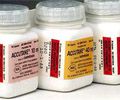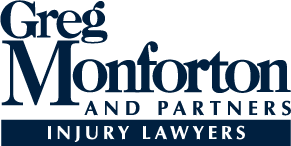 Teenagers and young adults suffering from severe, scarring acne may ultimately lose the most effective treatment for the condition.
Teenagers and young adults suffering from severe, scarring acne may ultimately lose the most effective treatment for the condition.
Swiss-based Roche Holding quietly pulled its blockbuster drug Accutane off the market in June amid early signs that the drug may be linked to inflammatory bowel disease. And last week, a study was released that quantified those risks, finding that users of the medication have almost twice the odds of developing a serious bowel disorder as nonusers.
For now, generic versions are still available, but the latest troubles could lead to the withdrawal of the controversial medication considered the treatment of last resort for acne so damaging it can lead to pitting of the face and a lifetime of anguish.
In its tumultuous 27-year history, the drug, also known as isotretinoin, has been found to cause serious birth defects if taken during pregnancy and to possibly increase the risk of depression, including suicidal behavior. Women who take it must register with the government, sign a consent form saying that they understand the medication’s risks, use two forms of birth control, and submit to monthly pregnancy tests.
The fact that it’s still on the market puzzles some former users and consumer advocates and reflects the profound lengths to which doctors, pharmacists, pharmaceutical companies, regulatory agencies and patients have gone to ensure its survival.
“It would be a true disaster if this medication would become unavailable,” said Dr. Steven Stone, chairman of an American Academy of Dermatology committee that has reviewed the drug’s safety.
“People don’t die of acne, so it’s easy to say, ‘This is a drug that causes inflammatory bowel disease; let’s take if off the market.’ But that ignores the psychological harm of severe acne.”
A form of vitamin A, isotretinoin is usually taken daily for three to six months, resulting in lasting improvements in 99% of patients and a cure in about 70%.
It is also used occasionally for psoriasis, lupus and cancer.
Accutane has been used by more than 13 million people worldwide and was one of Roche’s best-selling drugs, with about $200 million a year in sales before its patent expired in 2002.
Get Your Free Case Evaluation today!
At Greg Monforton & Partners, we only get paid when we obtain a recovery on your behalf.


 (866) 320-4770
(866) 320-4770 Free case review
Free case review